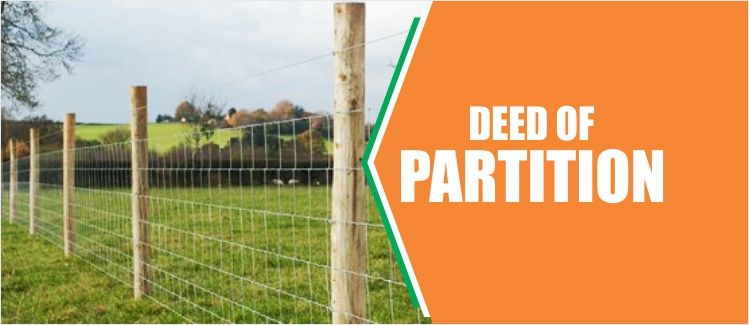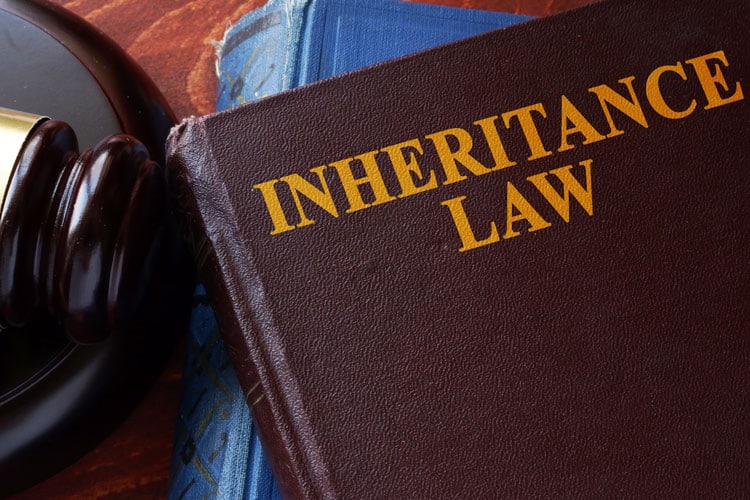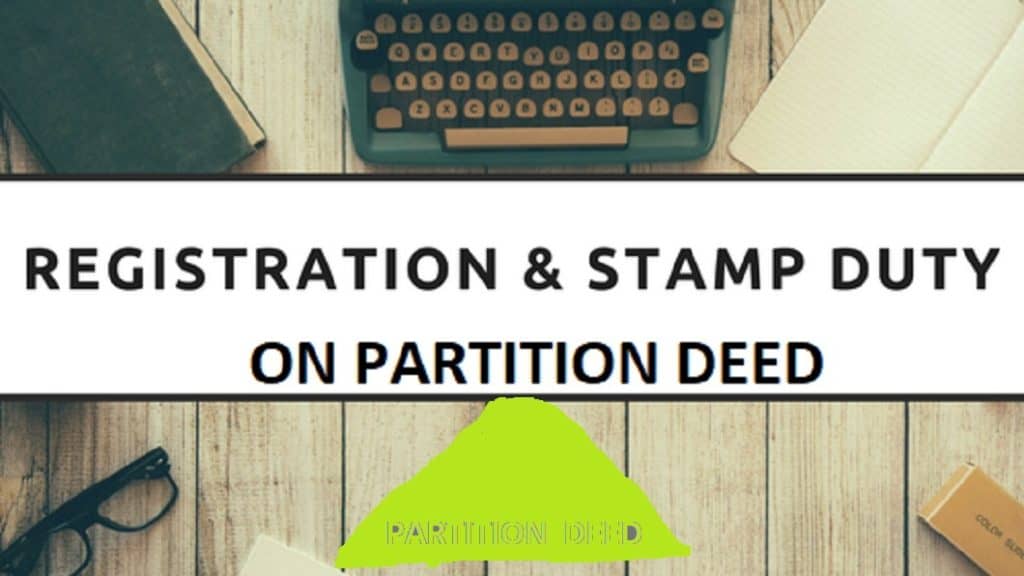Property Geek
We provide the actual and accurate information with unbiased user driven reviews to our viewers, to help them see the best and find the best!
View posts
Real estate properties of families are often jointly owned by multiple people. When there is more than one stakeholder, it becomes difficult to divide or sell it, due to difference of opinion and interest and that is where a partition deed comes into play.
To overcome property disputes on properties owned by multiple people, there are various provisions for evenly dividing the property among its owners. One such provision is the partition deed. Here’s everything you need to know about the partition deed.

An immovable estate that is owned by a family is commonly subjected to joint ownership by many people. In the case of such combined property, the rights of the co-owners are limited, so they decide to go their own way.
A partition deed or a deed of partition is a legal instrument that enables the property to be divided among the co-owners of the property in such a way that each co-owner is allotted his share thereby making him the rightful owner of the share allotted to him.
In a joint property, it is not possible for a co-owner to sell, gift, or rent their share of the property without the consent of the other owners. The need for a partition deed arises when it becomes important to create a clear division of shares in a property. It is most commonly used by families with joint property to divide members’ share in the inherited property.
Each member then becomes an independent owner of their share of the property after which they are legally free to sell, rent or gift the asset, according to their will.
If a property is being divided between two people who have invested in the purchase, the division is based on their respective contributions.
For instance, if two siblings bought a property for Rs. 2 Crore and each contributed Rs. 1 Crore, then the property will be divided equally between them through a partition deed. However, the law assumes each member to have an equal share in an undivided property, unless documentary proof stating otherwise is produced. That is, had they contributed to the property in a ratio of 60:40, the division would be in this manner.
In case the property is inherited, the share of co-owners in a property would be based on their treatment in the inheritance law governing their religion.

The laws of inheritance govern the partition of any property. The inheritance laws of Hindus, Muslims, and Christians are subjected to their respective inheritance laws.
The share of each member is determined at the time of the partition, based on his/her entitlement under the applicable laws of inheritance. The Hindu Succession Act, 1956 will be applicable at the time of an inherited estate in the case of Hindus.
After the partition, each share of the property becomes an independent entity and each divided share gets a new title. Members also surrender the claims in the shares that were allocated to the other members. For instance, if X, Y, and Z own a property, then after the partition deed, X and Y would have to give up on their rights on Z’s allocated share, and vice versa.
Other than the common areas where rights of easements are applicable, each member now has an independent property within an estate. This also provides them the right to deal with their share in a manner they like. It is compulsory for each party to complete the property mutation process in order to make the changes legally valid.

In order to attain legal validation, a partition deed must be registered with the sub-registrar of the area in which the immovable asset is located. This provision has been mandated under Section 17 of the Indian Registration Act, 1908. In order to get the partition deed registered, the parties involved in partition, have to pay for the following:
Yes, it is compulsory to register a partition deed. When you register a partition deed, all the information regarding your property rights, title and ownership becomes a public record. This will benefit you in the following ways:
According to the provisions of the Transfer of Property Act, by registering the partition deed, the interest or title can be transferred from one person to another.
According to law, a partition can take place in two ways:

If all the co-owners of the property have mutually agreed to divide the property, they can move forward by executing a partition deed and registering it with the local sub-registrar. After the deed has been executed, the co-owners will become legal owners of their respective shares and will be free to sell, transfer or gift the same. But sometimes it is not that simple.
At times, the joint owners of the property are not on the same page over the partition of the property. If even one of the co-owner of the property does not wish to execute a partition deed, then a lawsuit will be filed in court. After this, the partition deed is registered at the local registrar’s office. The deed is made on stamp paper, in which the details of the share of each individual owner are mentioned.
According to the provisions of law, a property can be divided into two ways:
The need for a partition deed arises when it becomes important to create a clear division of shares in a property. It is most commonly used by families with joint property to divide members’ share in the inherited property.
The need to go for a partition suit arises if a dispute or if the co-owners do not mutually agree to the partition. In this case, a partition suit must be filed in an appropriate court of law. But before a suit is filed, they’ll have to issue a request to all the co-owners.
There are certain provisions that you must know when a jointly owned property is partitioned.

According to the provision of the laws governing inheritance among Hindus, Jains, Buddhists, and Sikhs, Class-I heirs of a property can enter into a verbal memorandum of family settlement and divide the property into mutually agreeable terms. This verbal agreement has been reached without the use of a partition deed. Thus, it is not necessary to register the transaction.
It is also to be noted that, in case of the absence of a partition deed, the shares of the co-owners remain undivided. This also implies that they cannot sell, gift, or transfer their share in the property on their own.

The beneficiaries are not liable to pay any capital gains tax after the division since no transfer has taken place as such through the partition.
Provided below is a general partition deed format.
Note here that this deed is only to give the readers a general view of the deed.
This deed of partition made at __________this _________ day of
(1) Mr._________________, S/o._____________, Age ______years, Occupation__________, Residing at__________________________. Hereinafter referred to as the first party.
(2) Mr_________________, S/o._____________, Age ______years, Occupation__________, Residing at__________________________. Hereinafter referred to as the second party.
(3) Miss_________________, D/o._____________, Age ______years, Occupation__________, Residing at__________________________. Hereinafter referred to as the third party.
WHEREAS;
(a) The property described in the first schedule shall be allotted to the first party exclusively.
(b) The property described in the second schedule shall be allotted to the second party exclusively.
(c) The property described in the said third schedule shall be allotted to the third party exclusively.
Now this deed witnesseth that
Schedule A (Details of Undivided properties belongs to Joint Family)
Sl. _______________ No. _______________
Description of the property
1.
2.
3.
4.
FIRST SCHEDULE
(Property allotted to the share of Sri.__________________________First party)
SECOND SCHEDULE
(Property allotted to the share of Sri.__________________________Second party)
THIRD SCHEDULE
(Property allotted to the share of Miss_________________________Third party)
WITNESS:
To attain legal validation, a partition deed must be registered with the sub-registrar of the area in which the immovable asset is located. This provision has been mandated under Section 17 of the Indian Registration Act, 1908.
According to law, a partition can take place in two ways:
1. Partition of property by mutual consent (involvement of all the parties)
2. Partition of property without mutual consent (all the parties are not on the same page regarding the partition)
It is advised that co-owners first reach an agreement and clearly set the terms and conditions of the partition. Once the text is ready, the deed must be drafted on a stamp paper and the parties involved must proceed with the registration. In order to attain legal validation, a partition deed must be registered with the sub-registrar of the area in which the immovable asset is located. This provision has been mandated under Section 17 of the Indian Registration Act, 1908.
A verbal partition will be valid, as long as a written memorandum of agreement has been signed among the family members pertaining to the partition. This document need not be registered.
Whether you can sell your share of an inherited property depends if the partition deed is registered or not. If the partition deed is registered, you can sell, transfer or gift your share of the property without any legal troubles. If you do so without a partition deed, it may lead to legal trouble in the future.